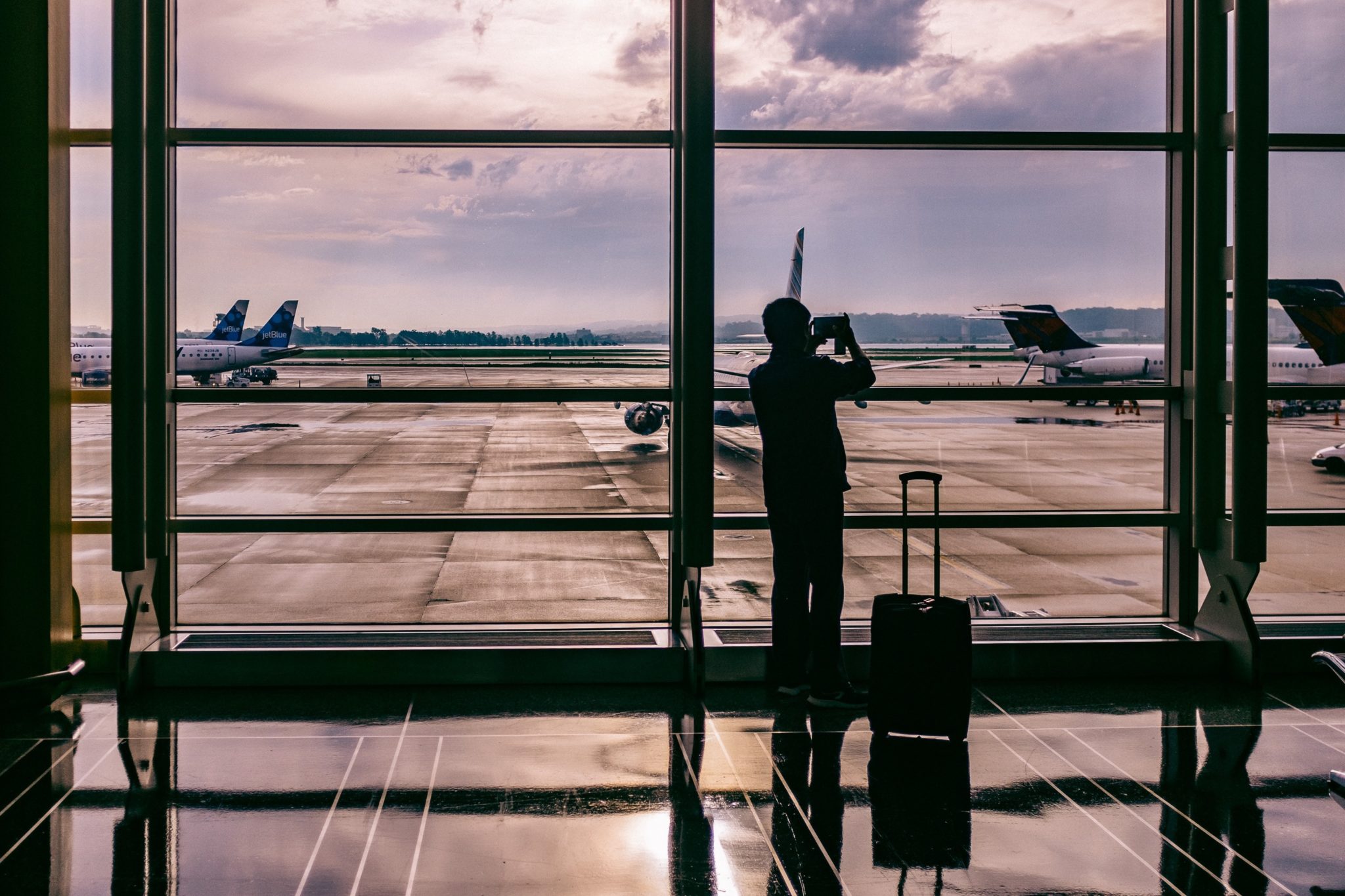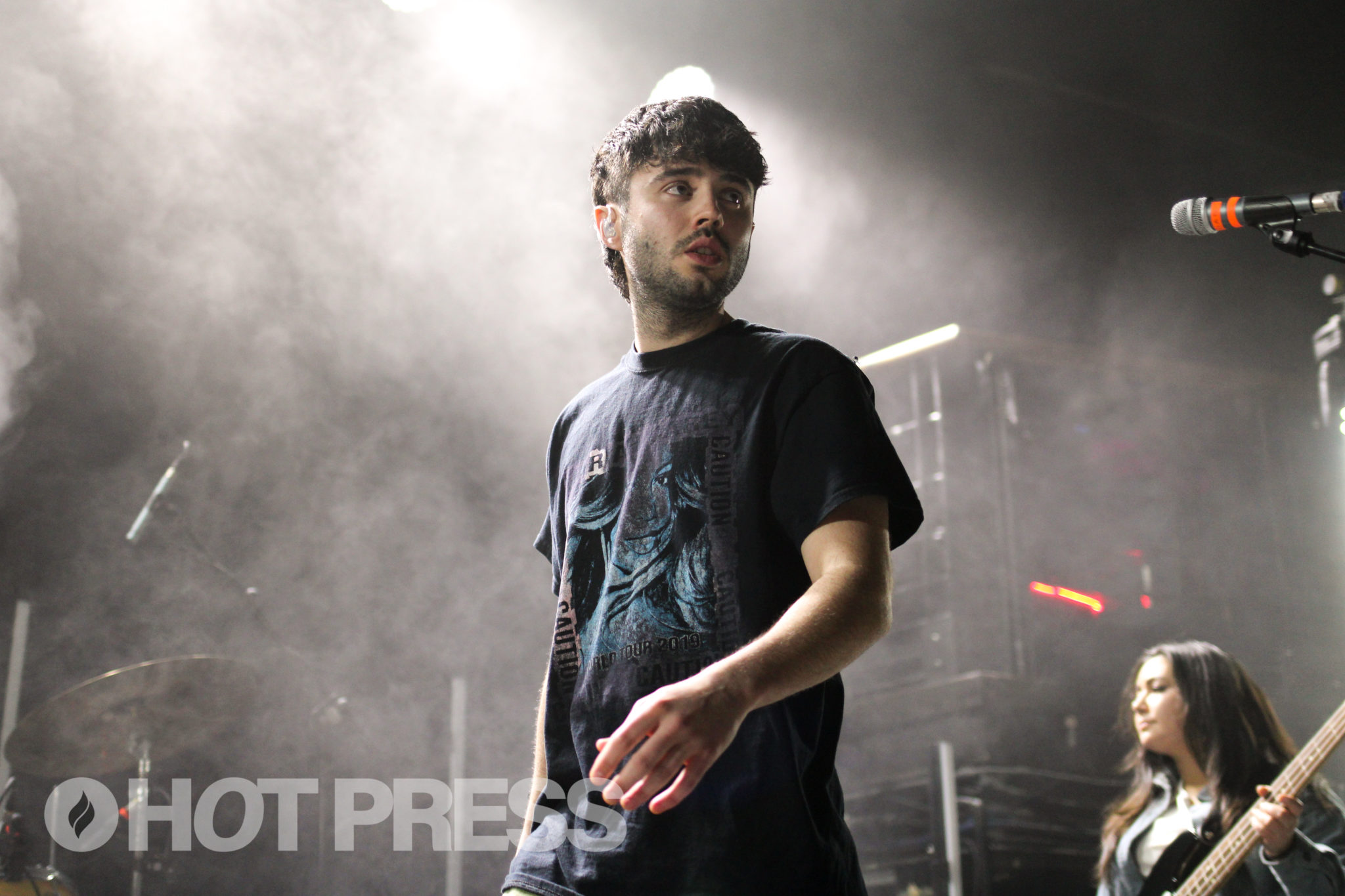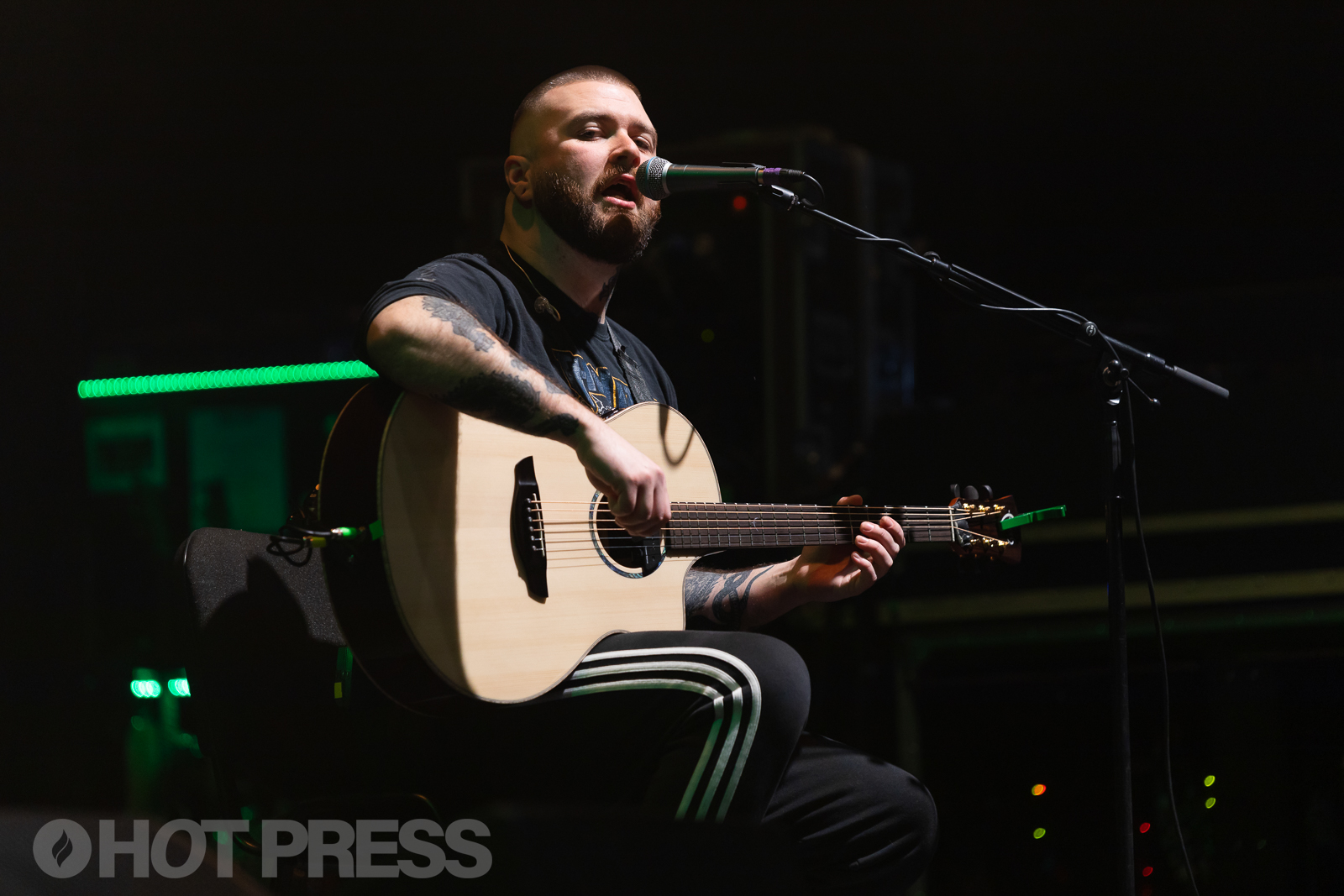- Opinion
- 13 Jun 23
The Rising Costs of Touring: "Most USA jaunts run at a loss to begin with, so any jump is really bad"

The USA is the biggest and most important market in the world for music. However, Irish artists and bands may struggle to gain a foothold there, if a proposal to increase the fees paid by musicians and their crew for touring visas gets the green light. God Is An Astronaut, Somebody’s Child, The Scratch and Modernlove give their reaction.
Making it in America has been a fundamental milestone in any ambitious musician’s career. It is, after all, the biggest music market in the world. Irish rock heroes U2 made it a primary target from the get-go – and it stood to them when they finally accelerated to global dominance with The Joshua Tree. That album sold over 10 million copies in the US alone.
However, in January 2023, it emerged that the US Department of Homeland Security (DHS) was proposing a significant hike in the fees that have to be paid for touring visas – which are required if an artist or band is to tour America legally.
If the plan is given the green light, the cost of a P visa – the one used most frequently by international touring artists – will rise from $460 to $1,615 per individual musician or crew member – a whopping 251% increase. Similarly the O visa, which is designed for people of exceptional ability, and used for longer-term work by professionals like actors, as well as sports stars and scientists, would increase by 260%, from $460 to $1,655.
The Citizenship and Immigration Department says that the increase is needed because of the combination of high demand and staff shortages. In other words, they really are trying to reduce the workload by making it less viable for artists.

LENGTHY AND EXPENSIVE PROCESS
For many musicians, the price may simply be too high to pay. Already, God Is An Astronaut, an internationally successful live band from Wicklow, who have toured in places as far-flung as Russia, Ukraine, India and Australia, as well as across the US and Canada – and whose 2023 schedule currently includes gigs in Italy, Romania, Hungary and Peru – have decided against touring the US in 2024.
“The proposed hike in visa fees,” band leader Torsten Kinsella says matter-of-factly, “will put touring out of reach for all new, upcoming European artists. And even for established independent artists.”
For a touring party of six, the additional upfront costs amount to in the region of $7,000. And that money has to be paid in advance, along with the legal fees that a visa application almost inevitably entails. Torsten stresses the anti-competitive nature of the US plans.
“American bands who come to tour in Ireland and Europe do not face the same costs,” he says. “They pay a fraction of what we already have to pay – giving the US music industry an unfair advantage.”
So far, he suggests, the official Irish response has been defined by a desire to avoid ruffling feathers.
“The Irish government will not intervene on this matter,” he says bluntly, “as they are fearful of upsetting their US counterparts.”
 Torsten Kinsella sound checks in Milan.
Torsten Kinsella sound checks in Milan.Now, the UK performers’ union, Equity, has entered the debate.
“These increases could have a serious impact on the ability of our members to work in the United States,” the general secretary of Equity, Paul W. Fleming, complained to US magazine, Variety. “Equity would echo the concerns of other trade unions and engagers across the industry who have called for them to be reconsidered.”
While Equity does not support a tit for tat response, there are others – including musicians – who think that's the only thing that will focus minds.
One industry insider suggested that the UK – and potentially Europe – should reciprocate by imposing similar work tariffs, putting an equivalent squeeze on American artists and bands coming to Europe. It is part of a wider, recent drift towards trade protectionism – which is inherently contrary to the spirit of cultural exchange.
In relation to the UK, as it happens, there is already potential trouble ahead for Irish artists.
“The problem with touring in the UK, post-Brexit, is the possible requirement for an ATA carnet,” Torsten Kinsella explains. “This has not yet been fully enforced between Ireland and the UK, but if it is, it will mean putting up thousands of euros as a bond to import/ export your musical equipment – which most bands simply cannot afford to do.”
Irish band Modernlove. are a young outfit on the rise. They have been making significant progress internationally, touring widely – including in the US.
“We recently completed our debut 16-date US tour on a P1 visa,” they told Hot Press. “We can totally appreciate the concern around this proposed fee increase and the impact it would have on artists at a similar level to ourselves.
“Gig fees won’t necessarily increase just because the costs of securing a visa have,” they observe. “And securing a visa can be a lengthy and expensive process anyway – so touring becomes even more precarious financially.”
 Somebody's Child at The Academy on March 3rd, 2023. Copyright Abigail Ring/ hotpress.com
Somebody's Child at The Academy on March 3rd, 2023. Copyright Abigail Ring/ hotpress.comIT COST US $14,500
Cian Godfrey, aka Somebody’s Child, has also been through the visa wars.
“It was very long,” Godfrey explains about the process. “We hired a company in the UK to file a petition… and there were a lot of hoops to jump through at different stages in the process.”
It was, to put it mildly, far from plain sailing.
“We were declined the first time,” he says with a wince. “We started the process six months out from when we were supposed to be playing in New York and Boston, and that was just after our South By South-West trip.
“Unfortunately our visas were declined in November which set us back a month. We had a tour just beforehand so logistically… it was too much of a risk to take, so we had to postpone our gigs in New York and Boston until September.
“That meant that, when we went over to SXSW, we ended up only being able to play the two official showcases,” he adds. “We spent the whole cost of getting over there ourselves without being able to earn any money because we couldn’t get the visas – so we took a bit of a loss.
“The expense in getting the visas is pretty huge,” he adds. “It would probably be north of $20k, including fees paid to lawyers. I doubt our label is going to pay that cost and most independent bands would be in the same boat.
“And then, to get the visa, you basically need people with Wikipedia pages to vouch for you and say that you have ‘Extraordinary Ability’ – so it’s a little bit crazy.”
 The Scratch Supporting Dropkick Murphys 3 Arena 14-01-23
The Scratch Supporting Dropkick Murphys 3 Arena 14-01-23The Scratch are another Irish band with their sights set on the US market. The band’s tour manager, Eamonn Conway, also found the process unnecessarily difficult and time-consuming.
“It’s quite long and confusing,” he says. “You could do it on your own – but I’m very glad we didn’t. The main thing is that you really need immigration lawyers who will help you navigate the whole process.
“All-in, it cost us around $14,500, which is expensive. So, with the 250% jump – for the visa fee – that would have bumped us up from $14.5k to just under $16k. Obviously that’s not good. Most US tours will run at a loss to begin with, so any jump like this is really bad.”
For opportunities that arise late in the day, the costs are higher again, with the additional charge for what’s called a “premium processing” fee.
The “premium” time for processing applications has been increased from 15 calendar days to 15 working days – that is, effectively, from two to three weeks. And the charge for these visas was increased, back in October 2020, from $1,440 to $2,500.
“Having to pay the premium processing fee to speed up the turnaround time comes at a cost of $5,000. For me, that’s a real issue”, Conway said. “That’s a huge amount of money for an artist going over to the States for the first time.
“The truth is that every little increase hurts the artist.”
While the Government has not taken a position formally on the issue, it would be wrong to say that they are ignoring it.
“The Culture Ireland grant programme,” a spokesperson for the Department of Tourism, Culture, Arts, Gaeltacht tells Hot Press, “offers support towards travel costs related to international presentation of Irish arts. Artists can include visa costs in their grant applications for consideration.”
They also offered the assurance that they will “continue to provide supports for artists to tour in this important territory and will acknowledge the increased costs if they arise in its grant support.”
Read more Frontlines features in the new issue of Hot Press, out now.
RELATED

- Lifestyle & Sports
- 22 Feb 21
Undocumented Migrants Can Apply For Regularisation By End of 2021, Says Minister Helen McEntee

- Opinion
- 29 Jan 26
Bruce Springsteen releases new anti-ICE song ‘Streets of Minneapolis’
RELATED

- Opinion
- 28 Jan 26
Pulse College: Where creativity meets real-world industry skills

- Opinion
- 27 Jan 26
Taoiseach to visit the US on St. Patrick's Day, despite calls to boycott
![The Threat of War: "[Trump] wants to isolate Europe" The Threat of War: "[Trump] wants to isolate Europe"](https://img.resized.co/hotpress/eyJkYXRhIjoie1widXJsXCI6XCJodHRwczpcXFwvXFxcL21lZGlhLmhvdHByZXNzLmNvbVxcXC91cGxvYWRzXFxcLzIwMjVcXFwvMDZcXFwvMzAxMzI4MTZcXFwvVFJVTVAtZTE3Njk1MzY1MzY1MTYuanBnXCIsXCJ3aWR0aFwiOlwiMzA5XCIsXCJoZWlnaHRcIjpcIjIxMFwiLFwiZGVmYXVsdFwiOlwiaHR0cHM6XFxcL1xcXC93d3cuaG90cHJlc3MuY29tXFxcL2lcXFwvbm8taW1hZ2UucG5nP3Y9OVwiLFwib3B0aW9uc1wiOntcIm91dHB1dFwiOlwiYXZpZlwiLFwicXVhbGl0eVwiOlwiNTVcIn19IiwiaGFzaCI6IjM0MWIxYzhjNWE5YjI1NjVlNDcxODJkNjAxNzU5NTM0NTczMTQ1MTUifQ==/trump-e1769536536516.jpg)
- Opinion
- 27 Jan 26





